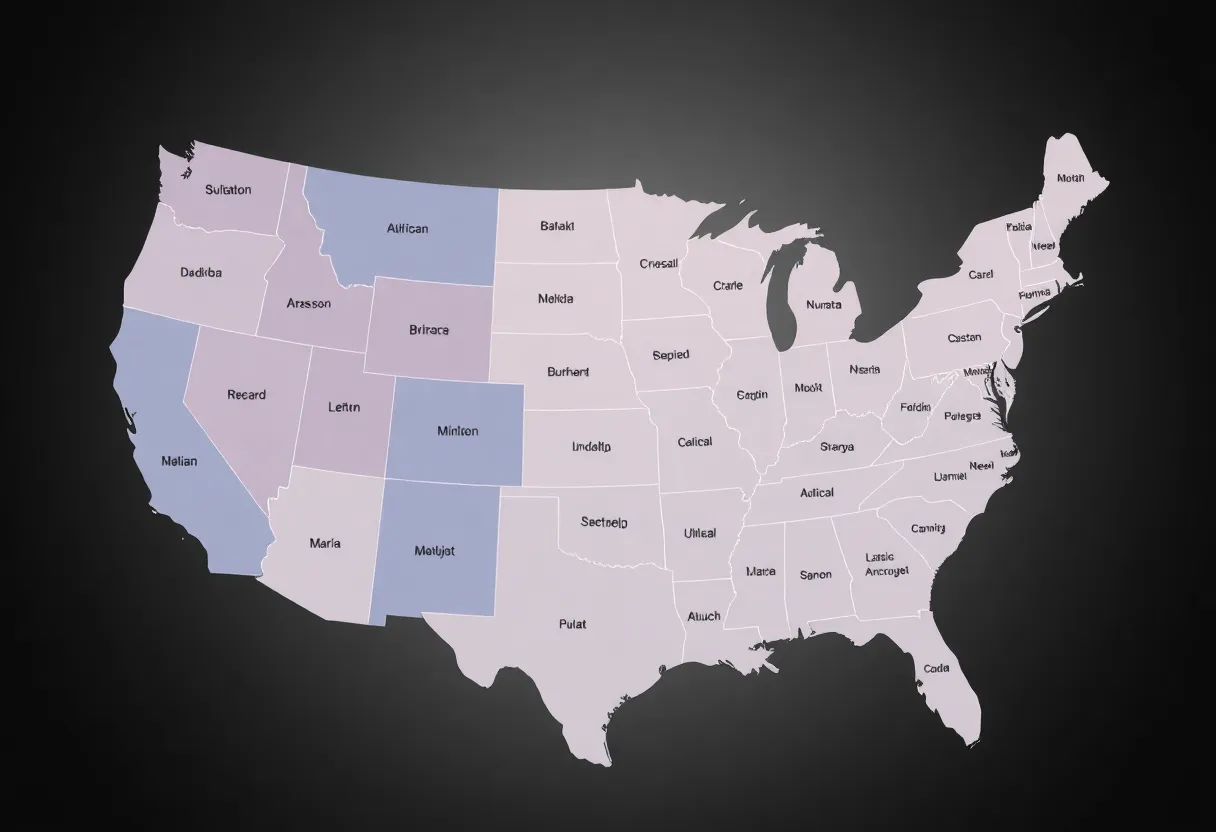News Summary
The U.S. Supreme Court is reviewing a Louisiana case that scrutinizes the constitutional validity of creating congressional districts with majority-Black or majority-Hispanic populations. This case has potential nationwide implications for voting rights and representation. With two majority-Black districts currently in place, an adverse ruling might reshape electoral dynamics, particularly benefiting Republican candidates. The core of the debate revolves around Section 2 of the Voting Rights Act, which aims to protect minority voter representation amidst challenges to race-based districting practices.
The Supreme Court Takes on Race-Based Redistricting in Louisiana
The U.S. Supreme Court is diving into a big and important topic: how race plays a role in drawing voting maps. This isn’t just about politics; it’s about representation and ensuring that everyone’s voice is heard in elections.
Recently, the Court decided to expand its review of a Louisiana case that challenges the way the state maps out its congressional districts. The focus? Whether it’s okay to intentionally create districts that have majority-Black or majority-Hispanic populations. This could change the face of electoral mapping all over the country!
The Heart of the Matter
Louisiana currently has six congressional districts, two of which are majority-Black. This is important because Black residents make up about one-third of the state’s population. So, why is there a challenge? Well, prior to the recent adjustments, Louisiana’s congressional map had only one majority-Black district, leading to concerns about fair representation.
After a pushback declaring that the old map likely violated the Voting Rights Act, Louisiana’s legislative body stepped up and created a new map featuring two majority-Black districts. However, not everyone is on board with this change. A group of non-Black voters has stepped forward, arguing that the newly drawn map is unconstitutional, opening a whole can of legal worms.
What’s at Stake?
This case isn’t just about Louisiana; it’s a significant issue that could have nationwide implications. If the Supreme Court decides that creating majority-minority districts is unconstitutional, it could potentially flip the political landscape in Louisiana by giving Republicans the opportunity to grab an extra congressional seat. Right now, the two majority-Black districts are represented by Democrats, while four districts are held by Republicans.
The Supreme Court has been known to take a hard stance against the Voting Rights Act in recent times, which has made many people anxious about the future of minority voter protections. The justices have asked for more written arguments that discuss how this situation could conflict with the Equal Protection Clause of the Fourteenth Amendment, which scrutinizes decisions made based on race.
What Does This Mean for Voting Rights?
At the heart of the debate is Section 2 of the Voting Rights Act. This section is there to protect minority voters from being pushed to the sidelines during elections. However, the challenge is to balance these protections with the scrutiny on race-based decisions, leading to all sorts of legal discussions and complexities.
The Supreme Court has now taken a deeper dive into this case, showing they want to hear further arguments about the constitutionality of these practices. This could reshape how states across the nation think about and draw their voting district lines going forward.
In Summary
The Louisiana case is a critical moment in the ongoing national conversation about race, representation, and voting. The final ruling, expected to be made after more discussions and arguments, could establish a precedent that influences electoral processes across the country, ensuring everyone has a fair chance to have their voices heard.
FAQ
What is the Louisiana case about?
The case is centered around whether intentionally creating majority-Black or majority-Hispanic congressional districts is constitutional under the Fourteenth and Fifteenth Amendments.
Why is race-based redistricting important?
Race-based redistricting is aimed at ensuring that minority votes are represented fairly during elections, protecting against gerrymandering practices.
What could happen if the Supreme Court rules against race-based districts?
If the Court rules against these practices, it may allow for changes that could benefit Republican candidates in Louisiana, potentially affecting nationwide electoral strategies.
What is Section 2 of the Voting Rights Act?
Section 2 protects minority voters from discrimination and uneven representation in the electoral process.
Key Features of the Redistricting Discussion
- Louisiana’s Congressional Map: Currently has six districts; two are majority-Black.
- Legal Challenges: A group of non-Black voters argues the new map is unconstitutional.
- Voting Rights Act: Section 2 aims to protect minority voters but faces scrutiny.
- Potential Implications: A ruling could reshape electoral maps and party representation.
Deeper Dive: News & Info About This Topic
- Politico: Supreme Court Louisiana Redistricting Order
- CNN: Supreme Court Louisiana Redistricting Case
- Democracy Docket: SCOTUS and Minority Voter Protections
- US News: Supreme Court and Voting Rights Law
- The Hill: Supreme Court Halts Appeals Ruling
- Wikipedia: Voting Rights
- Google Search: Voting Rights Act
- Google Scholar: Voting Rights Act
- Encyclopedia Britannica: Voting Rights Act
- Google News: Voting Rights

Author: STAFF HERE AUGUSTA WRITER
The AUGUSTA STAFF WRITER represents the experienced team at HEREAugusta.com, your go-to source for actionable local news and information in Augusta, Richmond County, and beyond. Specializing in "news you can use," we cover essential topics like product reviews for personal and business needs, local business directories, politics, real estate trends, neighborhood insights, and state news affecting the area—with deep expertise drawn from years of dedicated reporting and strong community input, including local press releases and business updates. We deliver top reporting on high-value events such as Arts in the Heart Festival, Westobou Festival, and Masters Week. Our coverage extends to key organizations like the Augusta Metro Chamber of Commerce and Greater Augusta Arts Council, plus leading businesses in manufacturing and healthcare that power the local economy such as Textron Specialized Vehicles, Cardinal Health, and Nutrien. As part of the broader HERE network, including HEREAtlanta.com and HERESavannah.com, we provide comprehensive, credible insights into Georgia's dynamic landscape.


